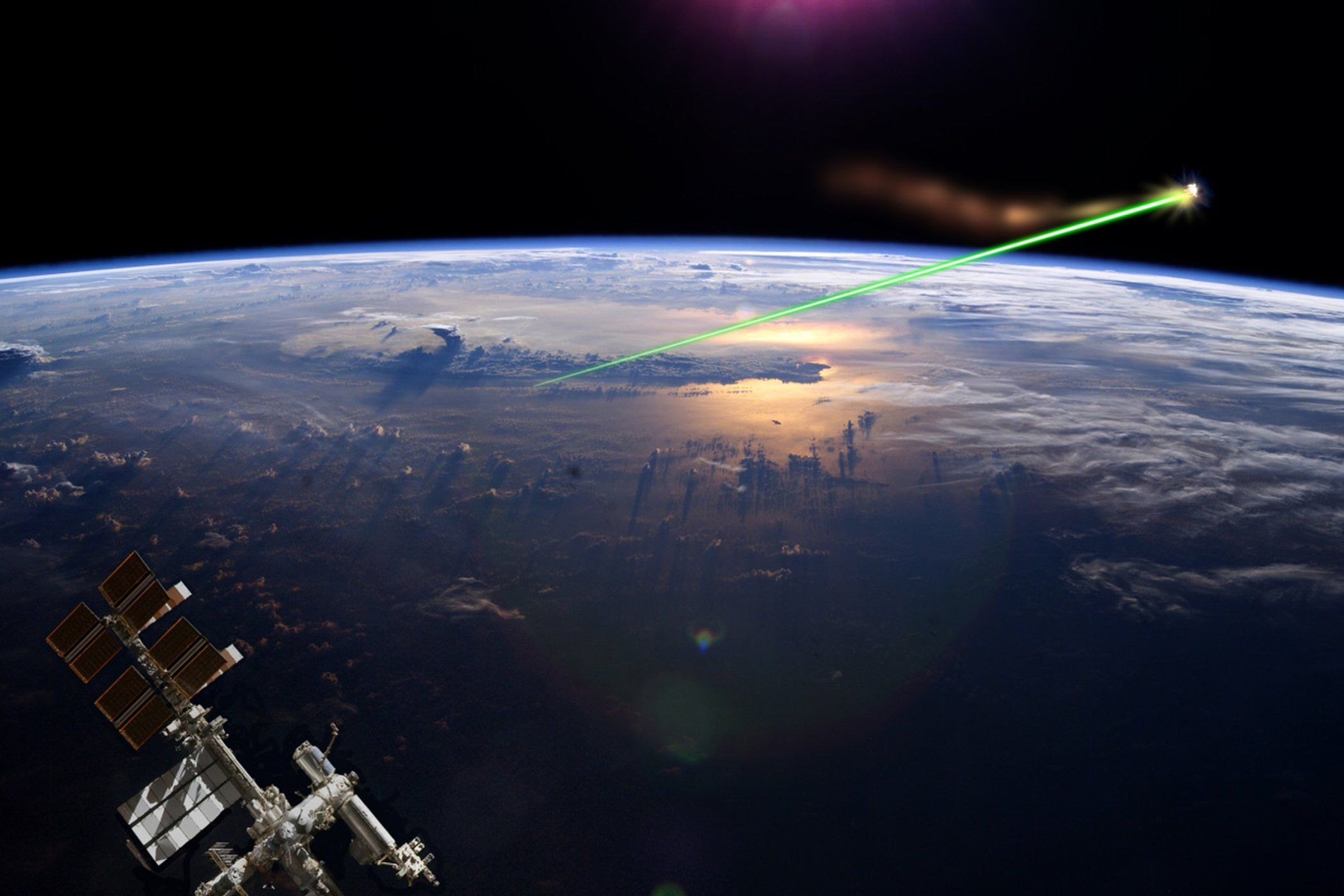In the world of quantum computing, interaction is everything.



There are churning, hellish, hot-and-cold gas storms swirling around our universe’s supermassive black holes. But the scientists who discovered them would prefer you call them “fountains.”
That’s a change from “donuts,” the term researchers previously used to describe the roiling masses. But a paper published Oct. 30 in The Astrophysical Journal reveals that the donut model of the mass around black holes may have been too simplistic.
About two decades ago, researchers noticed that the monster black holes at the centers of galaxies tended to be obscured by clouds of matter — matter that wasn’t falling into the black holes but rather circulating nearby. But astronomers couldn’t get a clear look at those clouds. They were able to simulate the currents around black holes, though, as in this example published in The Astrophysical Journal Letters in 2002, and they concluded that those clouds were donut-shaped — gas falling toward the black hole, getting heated up by proximity and bouncing away, only to fall back toward it again.[What’s That? Your Physics Questions Answered].

The Crypto Crash can lead to positive change for the future.
The ongoing crash in the Crypto-Currency Market is a breath of fresh air. I am sorry for the innocent people who are getting burned to a crisp but this crash is a necessary evil for a long list of reasons. The main benefit of this crash will be the institutional investors should be gone and simply that is the most awesome thing that could happen for the Crypto-Currency Market.
A number of the institutional investors and the strip miners have a negative impact on the Crypto-Currency markets. These two factions are not in the business to benefit Crypto-Currencies but to extract the maximum amount of profit from the venture. This is something I have said for years, mind you, not a single soul has listened to me, but it has been and will continue to be a simple honest truth. If Crypto is the survive the apocalypse, changes will have to be made.


[Editor’s Note: Mad Scientist Laboratory is pleased to publish the following post by returning guest blogger and proclaimed Mad Scientist Ms. Marie Murphy, addressing Directed Energy Weapon (DEW) applications in space, and their potential impact on Multi-Domain Operations (MDO) in the Future Operational Environment.]
The image of the “space war” is ubiquitous from popular Cold War and contemporary renderings: fast attack fighters equipped with laser cannons, swooping in to engage the enemy fleet in an outer space dogfight, culminating with the cataclysmic explosion of the enemy’s dreadnought. The use of directed energy in this scenario, while making for good entertainment, is a far cry from the practical applications of directed energy in space out to 2050. Taking a step back from the thrilling future possibilities of space combat, it is important to note that it is not a question of when lasers will be put into space — they already have been. What is uncertain is the speed at which lasers and other forms of directed energy will be weaponized, and when these capabilities will be used to extend conflict into the physical domain of low-earth orbit and outer space.
Since 2003, NASA has used a laser mounted on a satellite to measure ice sheets and conduct other environmental studies and mapping. This mission involved the constant emission of a green laser, split into six beams, reflecting off polar ice and returning photons to the satellite. NASA is presently exploring the use of lasers for communications, a technology with abundant military applications. One such program, undertaken jointly by NASA and private industry, is the use of optical, or laser, communications between space assets and ground stations on Earth. These optical transmissions have the benefit of allowing the communication.

The American missile defense system, strategically placed all around the globe, has been the centerpiece of the “defensive” capabilities of Washington for years. The system relies on anti-aircraft missiles, supposed to shoot down incoming hostile projectiles. But the emergence of unconventional weaponry –namely the hypersonic missiles– has raised demand for new, equally unconventional defense systems.
Apart from hitting an incoming projectile with an intercepting one, the anti-missile research and development in the US revolved around two main ideas – using lasers and hitting hostile missiles with a kinetic device. The US military-industrial companies have been recycling the two concepts for years, fielding several prototypes that never entered full-scale production.

The Ferox Azaris is a work of art to look at, and should offer some awesome rough terrain capabilities – but at its heart, it’s a test bed and demonstrator for a new, 98 percent efficient in-wheel motor, with a highly responsive fluid drive system that Ferox hopes will enable some pretty crazy future vehicle architectures.

